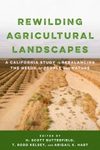About this book
Citizens expect their governments to lead on sustainability. But from largely disappointing international conferences like Rio II to the U.S.'s failure to pass meaningful climate legislation, governments' progress has been lackluster. That's not to say leadership is absent; it just often comes from the bottom up rather than the top down. Action – on climate, species loss, inequity, and other sustainability crises – is being driven by local, people's, women's, and grassroots movements around the world, often in opposition to the agendas pursued by governments and big corporations.
These diverse efforts are the subject of the latest volume in the Worldwatch Institute's highly regarded State of the World series. The 2014 edition, marking the Institute's 40th anniversary, examines both barriers to responsible political and economic governance as well as gridlock-shattering new ideas. The authors analyze a variety of trends and proposals, including regional and local climate initiatives, the rise of benefit corporations and worker-owned firms, the need for energy democracy, the Internet's impact on sustainability, and the importance of eco-literacy. A consistent thread throughout the book is that informed and engaged citizens are key to better governance. State of the World 2014 is a clear-eyed yet ultimately optimistic assessment of citizens' ability to govern for sustainability.
By highlighting both obstacles and opportunities, State of the World 2014 shows how to effect change within and beyond the halls of government. State of the World 2014 will be especially useful for policymakers, environmental nonprofits, students of environmental studies, sustainability, or economics – and citizens looking to jumpstart significant change around the world.
Contents
Acknowledgments
Foreword, by David W. Orr
PART I. Introduction
Chapter 1. Failing Governance, Unsustainable Planet \ Michael Renner and Tom Prugh
Chapter 2. Understanding Governance \ D. Conor Seyle and Matthew Wilburn King
PART II. Political Governance
Chapter 3. Governance, Sustainability, and Evolution \ John Gowdy
Chapter 4. Ecoliteracy: Knowledge Is Not Enough \ Monty Hempel
Chapter 5. Digitization and Sustainability \ Richard Worthington
Chapter 6. Living in the Anthropocene: Business as Usual, or Compassionate Retreat? \ Peter G. Brown and Jeremy J. Schmidt
Chapter 7. Governing People as Members of the Earth Community \ Cormac Cullinan
Chapter 8. Listening to the Voices of Young and Future Generations \ Antoine Ebel and Tatiana Rinke
Chapter 9. Advancing Ecological Stewardship Via the Commons and Human Rights \ David Bollier and Burns Weston
Chapter 10. Looking Backward (Not Forward) to Environmental Justice \ Aaron Sachs
Chapter 11. The Too Polite Revolution: Understanding the Failure to Pass U.S. Climate Legislation \ Petra Bartosiewicz and Marissa Miley
Chapter 12. China's Environmental Governance Challenge \ Sam Geall and Isabel Hilton
Chapter 13. Assessing the Outcomes of Rio+20 \ Maria Ivanova
Chapter 14. How Local Governments Have Become a Factor in Global Sustainability \ Monika Zimmerman
PART III. Economic Governance
Chapter 15. Scrutinizing the Corporate Role in the Post-2015 Development Agenda \ Lou Pingeot
Chapter 16. Making Finance Serve the Real Economy \ Thomas Palley
Chapter 17. Climate Governance and the Resource Curse \ Evan Musolino and Katie Auth
Chapter 18. The Political-Economic Foundations of a Sustainable System \ Gar Alperovitz
Chapter19. The Rise of Triple-Bottom-Line Businesses \ Colleen Cordes
Chapter 20. Working Toward Energy Democracy \ Sean Sweeney
Chapter 21. Take the Wheel and Steer! Trade Unions and the Just Transition \ Nina Netzer and Judith Gouverneur
PART IV. Conclusion
Chapter 22. A Call to Engagement \ Tom Prugh and Michael Renner
Notes
Index
Boxes
5–1 Networked Governance to the Rescue? \ Matthew Wilburn King
7–1 Extracts from the Constitution of Ecuador \ Cormac Cullinan
8–1 Representing Future Interests Within the United Nations \ Mirna Ines Fernández
8–2 Sovereign Wealth Funds: The Financial Arm of Intergenerational Governance? \ Elizabeth Buchan
9–1 Litigating for the Public Trust \ Alec Loorz
13–1 A Policy Mechanism for Ensuring Sustainable Development: National Resource Sufficiency Evaluation \ Ed Barry
14–1 Local Agenda 21: A Powerful Movement with Wide-ranging Impacts \ Monika Zimmerman
14–2 Local Government Involvement in the UN Biodiversity Convention \ Monika Zimmerman
14–3 Cities in the UN’s Post-2015 Development Agenda
17–1 The Norwegian Oil Fund \ Evan Musolino and Katie Auth
18–1 Ten Years On: Argentina’s “Recuperated” Worker-Owned Factories \ Leccese
19–1 Public Benefit Corporations in Delaware \ Colleen Cordes
21–1 The Just Transition Framework \ Nina Netzer and Judith Gouverneur
22–1 Women, Governance, and Sustainability \ Robert Engelman and Janice Pratt
22–2 Building a Culture of Engagement \ Tom Prugh
Tables
1–1. Carbon Emissions by Type of Entity, 1751–2010
1–2. Worldwide Protests by Selected Grievance or Demand, 2006–2013
4–1 Factors Contributing to Eco-Complacency and Disbelief
4–2 The Governance Tool Kit
5–1 Growth in U.S. Energy Usage, 1950–2010
5–2 U.S. Total Investment versus ICT Investment, 1992–2012
13–1 UN Millennium Development Goals: Goals and Targets
16–1 Growth of the U.S. Financial Sector, Selected Years, 1973–2007
16–2 Growth of U.S. Household Debt, Selected Years, 1973–2007
19–1 U.S. Movement for Benefit Corporation Laws
19–2 Global Reach of Certified B Corporations
20–1 Global Capacity or Production of Selected Renewable Energy Technologies, 2000 and 2012
20–2 Revenues and Profits of the World’s 50 Largest Corporations, by Industry, 2012
21–1 Green Economy Approaches: An Overview
21–2 Selected Proponents of the Green Economy
Figures
2–1 Google Scholar Hits for “Governance” and “Government,” 1950–2010
14–1 Local Climate Actions Paralleling Global Actions, 1990–2012
15–1 United Nations Funding Sources, 2012
16–1 The Virtuous Circle Keynsian Growth Model, 1945–75
16–2 Productivity and Real Average Hourly Wage and Compensation of U.S. Non- supervisory Workers, 1948–2011
16–3 The Neoliberal (“Market Fundamentalist”) Policy Box
16–4 Main Conduits of Financialization
16–5 Putting Finance Back in the Box
17–1 Freedom of the Press in Countries Most Dependent on Oil and Gas Earnings, 2011
22–1 Women in Parliaments, 1997–2013
Customer Reviews
Biography
Founded in 1974 by farmer and economist Lester Brown, Worldwatch was the first independent research institute devoted to the analysis of global environmental concerns. Worldwatch quickly became recognized by opinion leaders around the world for its accessible, fact-based analysis of critical global issues. Now under the leadership of population expert and author Robert Engelman, Worldwatch develops innovative solutions to intractable problems, emphasizing a blend of government leadership, private sector enterprise, and citizen action that can make a sustainable future a reality.


































